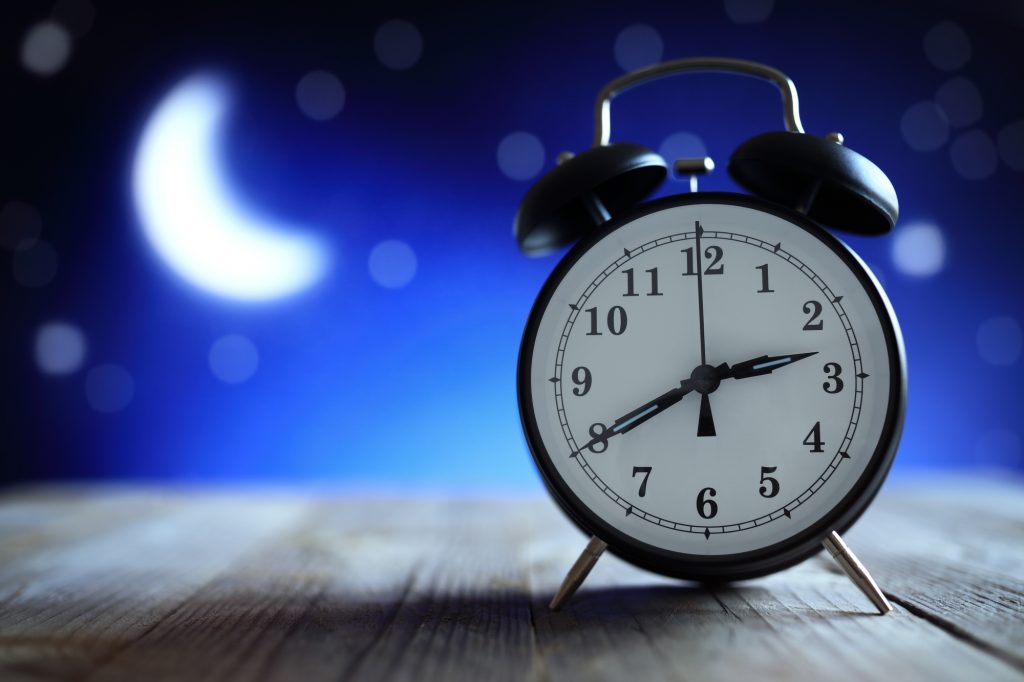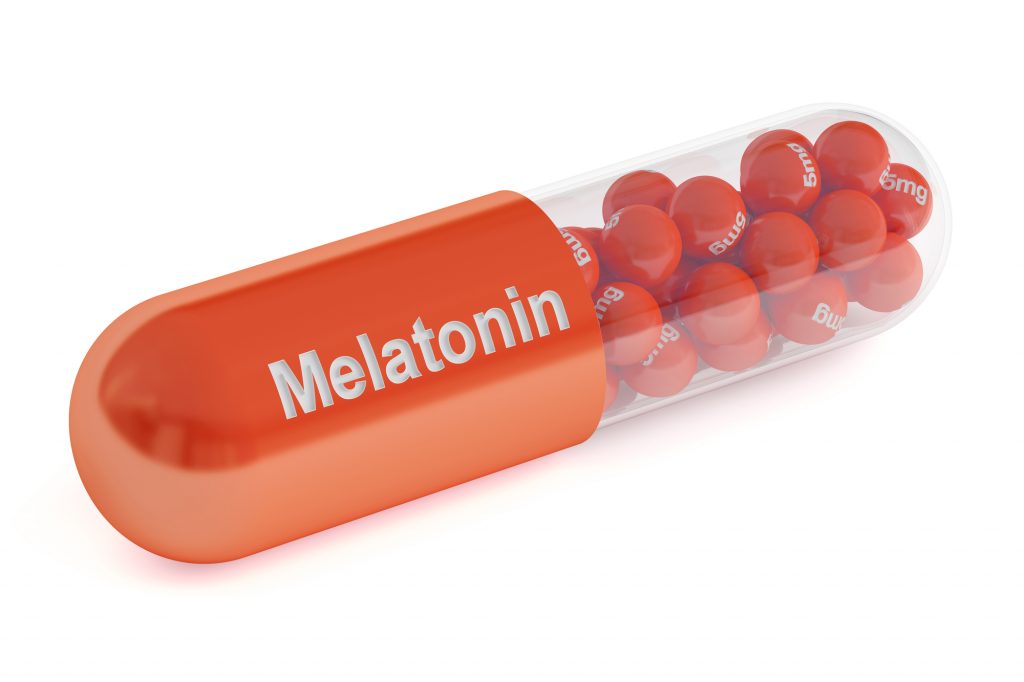
Do you have trouble falling asleep or staying asleep each night? If so, you’re not alone – about 33% of the US population has experienced insomnia at some point in their life and 10% have a persistent sleep problem (Wade et al., 2010).
Causes of Insomnia
Sleep can be disrupted by many factors, including periods of stress, anxiety, depression, jet lag, shift work, delayed sleep phase syndrome (falling asleep very late and waking late the next morning), erratic sleep schedules, diet, lack of exercise, lack of daylight, blindness, and certain medications. Additionally, total time spent sleeping tends to decrease with age. One common factor among these conditions is melatonin secretion.

Role of Melatonin
Our bodies follow a diurnal (day/night) schedule which is regulated by a biological clock in the brain. Melatonin is a hormone produced by the pineal gland and released into the bloodstream in the evening, usually two hours before bedtime (Wade et al., 2010). As melatonin levels rise, it promotes a state of “quiet wakefulness,” which prepares the body for sleep (Johns Hopkins Medicine, n.d.). The level of melatonin secreted by the pineal gland varies by age – for example, in adults the pineal gland produces between 0.1-0.8mg of melatonin each day, whereas children can produce up to double (0.5-0.8mg) (Natural Health International, n.d.). Production of melatonin typically declines with age (Wade et al., 2010).
Melatonin Supplementation
The first line of defense against insomnia involves removing afternoon & evening caffeine intake, planning exercise before 6pm, avoiding alcohol 3 hours before bedtime, sleeping in total darkness in a cool room, and avoiding screen time an hour before bed (IFM, 2016). However, if these changes don’t work, you may consider taking a melatonin supplement to bring your body back into balance with its circadian rhythm.
Studies have shown that melatonin supplements facilitate sleep onset (helping you to fall asleep quicker), increase total sleep time, and improve overall sleep quality, as compared to a placebo (Ferracioli-Oda, Qawasmi, & Bloch, 2013).

Finding the Right Dose
Melatonin supplements can typically be found in doses ranging from 0.3mg to 3.0mg (and even as high as 20mg!) Since the body naturally produces between 0.1-0.8mg of melatonin daily, anything within these parameters is considered a “physiologic” dose (an amount the body could produce naturally). Doses over 0.8mg are considered “pharmacologic” and represent an amount beyond what the body can produce on its own.
The primary goal of supplementation is to provide the body with its “normal” or physiologic amount of melatonin (0.3mg) so that it can return to its normal circadian rhythm (Natural Health International, n.d.). Studies have suggested that pharmacologic doses do not typically increase the benefits of melatonin any more than physiologic doses (Zhdanova et al., 2001). In fact, doses of 3.0mg or higher are associated with a decreased core body temperature that may even interfere with sleep in sensitive individuals.
If a physiologic dose below 0.8mg is not helping your insomnia, consult a doctor or health care provider about gradually increasing the dose.
Finding the Right Time
Melatonin is most effective when taken every day – and not skipping days in between. (Remember: the goal is to re-synchronize the body with its circadian rhythm!) Aim to take the supplement between 30 minutes and 2 hours before your bedtime. To ease jet lag, take melatonin about 2 hours before your anticipated bedtime at your destination, and begin this routine a few days before your travel (Johns Hopkins Medicine, n.d.).

Precautions
Melatonin should not be taken along with blood pressure medications, blood thinning medications, MAOI inhibitors, steroids, and immunosuppressant drugs (Natural Health International, n.d.) Additionally, people with autoimmune conditions, diabetes, thyroid conditions, epilepsy, leukemia, lymphoproliferative disorders, or major depressive mood disorders should discuss melatonin supplementation with a doctor. Melatonin has not been tested in pregnant or lactating women.
References
Ferracioli-Oda, E., Qawasmi, A., & Bloch, M. H. (2013). Meta-analysis: Melatonin for the treatment of primary sleep disorders. PLoS ONE, 8(5), 1–6. https://doi.org/10.1371/journal.pone.0063773
Institute for Functional Medicine (IFM). (2016). Suggestions for better sleep. Retrieved from IFM Toolkit for MUIH MS and PhD Programs.
Johns Hopkins Medicine. (n.d.) Melatonin for sleep: Does it work? Retrieved from https://www.hopkinsmedicine.org/health/wellness-and-prevention/melatonin-for-sleep-does-it-work
Natural Health International. (n.d.) Melatonin research review. Retrieved from MUIH Class Notes
Wade, A.G., Ford, I., Crawford, G., McConnachie, A., Nir, T., Laudon, M., … Zisapel. (2010). Nightly treatment of primary insomnia with prolonged release melatonin for 6 months: A randomized placebo controlled trial on age and endogenous melatonin as predictors of efficacy and safety. BMC Medicine, 8, 51. https://doi.org/10.1186/1741-7015-8-51
Zhdanova, I. V., Wurtman, R. J., Regan, M. M., Taylor, J. A., Shi, J. P., & Leclair, O. U. (2001). Melatonin treatment for age-related insomnia. The Journal of Clinical Endocrinology and Metabolism, 86(10), 4727–4730.

I have prescribed Melatonin as a sleeping aid for years, often 10 mg no later than 9 PM, works well for most, I try to keep patients off benzodiazepams as they suppress REM sleep and can be habit forming.